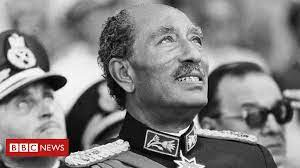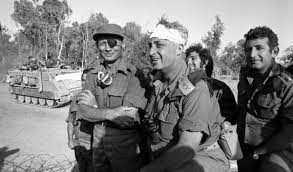The Reno brothers carry out the first train robbery in U.S. history
On October 6, 1866, the brothers John and Simeon Reno stage the first train robbery in American history, making off with $13,000 from an Ohio and Mississippi railroad train in Jackson County, Indiana.
Of course, trains had been robbed before the Reno brothers’ holdup. But these previous crimes had all been burglaries of stationary trains sitting in depots or freight yards. The Reno brothers’ contribution to criminal history was to stop a moving train in a sparsely populated region where they could carry out their crime without risking interference from the law or curious bystanders.
Though created in Indiana, the Reno brother’s new method of robbing trains quickly became very popular in the West. Many bandits, who might otherwise have been robbing banks or stagecoaches, discovered that the newly constructed transcontinental and regional railroads in the West made attractive targets. With the western economy booming, trains often carried large amounts of cash and precious minerals. The wide-open spaces of the West also provided train robbers with plenty of isolated areas ideal for stopping trains, as well as plenty of wild spaces where they could hide from the law. Some criminal gangs, like Butch Cassidy’s Wild Bunch, found that robbing trains was so easy and lucrative that for a time they made it their criminal specialty.
The railroad owners, however, were not about to sit back and let Cassidy or any other bandit freely pillage their trains. To their dismay, would-be train robbers increasingly found that the cash and precious metals on trains were well protected in massive safes watched over by heavily armed guards. Some railroads, such as the Union Pacific, even began adding special boxcars designed to carry guards and their horses. In the event of an attempted robbery, these men could not only protect the train’s valuables, but could also quickly mount their horses and chase down the fleeing bandits—hopefully putting a permanent end to their criminal careers. As a result, by the late 19th century, train robbery was becoming an increasingly difficult—and dangerous—profession.
COLD WAR
1961
President Kennedy urges Americans to build bomb shelters
President John F. Kennedy, speaking on civil defense, advises American families to build bomb shelters to protect them from atomic fallout in the event of a nuclear exchange with the Soviet Union. Kennedy also assured the public that the U.S. civil defense program would soon begin providing such protection for every American. Only one year later, true to Kennedy’s fears, the world hovered on the brink of full-scale nuclear war when the Cuban Missile Crisis erupted over the USSR’s placement of nuclear missiles in Cuba. During the tense 13-day crisis, some Americans prepared for nuclear war by buying up canned goods and completing last-minute work on their backyard bomb shelters.
COLONIAL AMERICA
1683
First Mennonites arrive in America
Encouraged by William Penn’s offer of 5,000 acres of land in the colony of Pennsylvania and the freedom to practice their religion, the first Mennonites arrive in America aboard the Concord. They were among the first Germans to settle in the American colonies.
SPORTS
1926
Babe Ruth sets a World Series record
On October 6, 1926, Yankee slugger Babe Ruth hits a record three homers against the St. Louis Cardinals in the fourth game of the World Series. The Yanks won the game 10-5, but despite Ruth’s unprecedented performance, they lost the championship in the seventh game.
U.S. PRESIDENTS
1996
Bill Clinton debates Bob Dole
On October 6, 1996, Democratic President Bill Clinton faces his Republican challenger, Senator Bob Dole from Kansas, in their first debate of that year’s presidential campaign. The debate, which took place in Hartford, Connecticut, and was moderated by Jim Lehrer of PBS, gave the candidates a chance to put forth their views on education, the economy, Medicare and tax cuts. Clinton took credit for improving the economy and slashing the budget deficit he had inherited from George H.W. Bush when he took over the presidency in 1992. Dole challenged Clinton’s “ad hoc” approach to foreign affairs, challenged his record on crime and spending and proposed a whopping tax cut of more than $550 billion.
CRIME
1981
The president of Egypt is assassinated
Islamic extremists assassinate Anwar Sadat, the president of Egypt, as he reviews troops on the anniversary of the Yom Kippur War. Led by Khaled el Islambouli, a lieutenant in the Egyptian army with connections to the terrorist group Takfir Wal-Hajira, the terrorists, all wearing army uniforms, stopped in front of the reviewing stand and fired shots and threw grenades into a crowd of Egyptian government officials. Sadat, who was shot four times, died two hours later. Ten other people also died in the attack.
COLD WAR
1973
The Yom Kippur War brings United States and USSR to brink of conflict
The surprise attack by Egyptian and Syrian forces on Israel in October 1973 throws the Middle East into turmoil and threatens to bring the United States and the Soviet Union into direct conflict for the first time since the Cuban Missile Crisis in 1962.
WORLD WAR I
1908
Austria-Hungary annexes Bosnia-Herzegovina
On October 6, 1908, the Dual Monarchy of Austria-Hungary announces its annexation of Bosnia and Herzegovina, dual provinces in the Balkan region of Europe formerly under the control of the Ottoman Empire. Though Bosnia and Herzegovina were still nominally under the control of the Ottoman Sultan in 1908, Austria-Hungary had administered the provinces since the Congress of Berlin in 1878, when the great powers of Europe awarded the Dual Monarchy the right to occupy the two provinces, with the legal title to remain with Turkey. As the provinces were coveted by many—in fact, both Austria and Hungary wanted Bosnia and Herzegovina for themselves—the decision was more or less a stopgap to preserve the delicate balance of power in Europe. To make matters more complicated, the largely Slavic population of the two provinces had nationalist ambitions of their own, while their fellow Slavs in nearby Serbia yearned to annex them to further their pan-Slavic ambitions.








Comments
Post a Comment